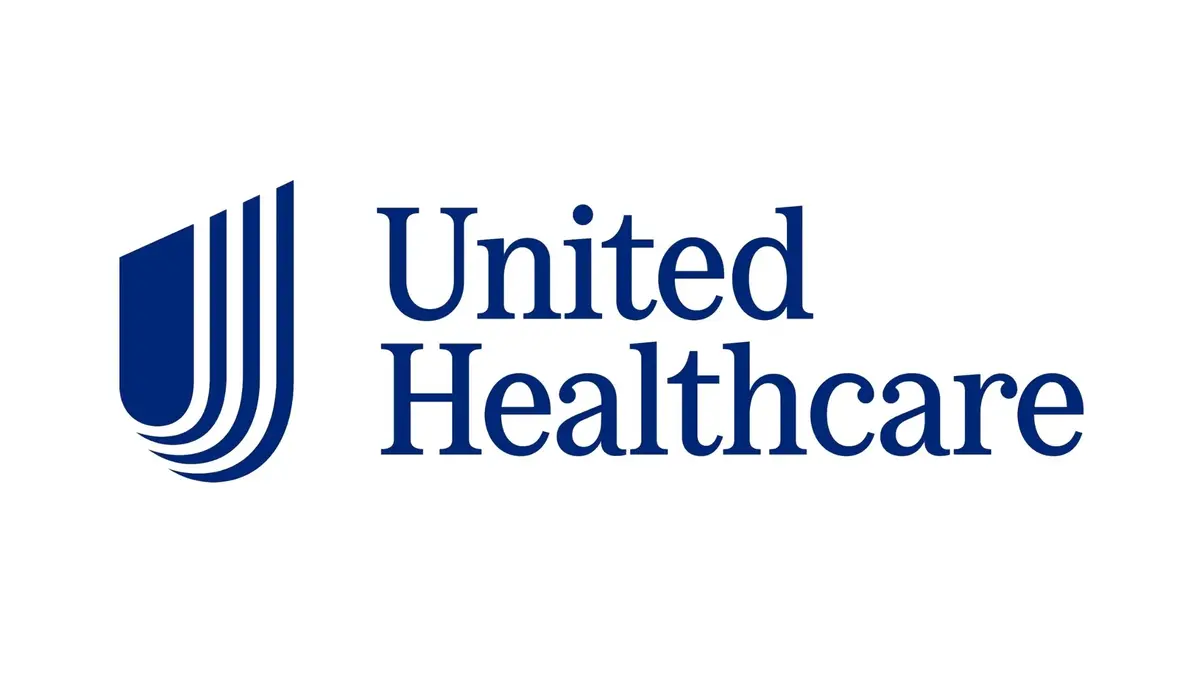Does United Healthcare cover Borderline Personality Disorder (BPD)? In this comprehensive resource, we’ll answer that question while exploring the various treatment modalities available to support those living and coping with BPD. We’ll also provide insight into how to access the necessary treatment for this distressing yet treatable disorder that affects about 1.6% of the general population.

Florida Borderline Personality Disorder Treatment with United Healthcare
What are Common Borderline Personality Disorder (BPD) Symptoms?
BPD symptoms often start during the teenage years and can significantly impact an individual’s life. This complex mental health condition is characterized by pervasive patterns of emotional instability, skewed self-perception, changes in behavior, and issues maintaining interpersonal relationships. BPD symptoms may vary among individuals, but people typically exhibit at least five of the following common symptoms consistently over time:
- Difficulty controlling anger, leading to extreme outbursts
- Intense fear of abandonment, prompting drastic actions to avoid it
- Feelings of dissociation from oneself, the body, or reality, accompanied by paranoid thoughts
- Unstable relationships oscillating between closeness and hostility
- Fluctuating sense of self, resulting in sudden shifts in goals, values, or behaviors
- Persistent feelings of emptiness
- Engagement in self-destructive behaviors like substance misuse, binge eating, unsafe sex, reckless driving, or excessive spending
- Severe mood changes over hours or days
- BPD and self-harm (cutting, hair pulling, burning) are common and can lead to suicide attempts

Who is United Healthcare?
UnitedHealth Group, one of the world’s largest healthcare companies, was founded in 1977. With over 330,000 employees and a presence in over 130 countries, it operates multiple subsidiaries, including United Healthcare (UHC). The United Healthcare network is extensive and includes doctors, hospitals, specialists, and pharmacies in Florida and beyond.
UHC plans in Florida include the following:
- United Healthcare Individual Plans
- United Healthcare Family Plans
- United Healthcare Group Plans
- United Healthcare Medicare Advantage Plans
- United Healthcare Medicare Supplement Plans
- United Healthcare Medicaid
United Healthcare (UHC) is based in Minnesota and provides its members with a range of additional services and resources, including an online and mobile app, which allows users to manage their accounts, find United Healthcare providers, check claims, and access educational resources.

At The Sylvia Brafman Mental Health Treatment Center in Fort Lauderdale, Florida, our team of dedicated professionals is ready to guide you. We offer IOP and a variety of treatments programs, each uniquely designed to meet your needs. So don’t wait, reach out to us today! Either give us a call or fill up the form below to request a callback.
"*" indicates required fields

Does UHC Cover Borderline Personality Disorder Treatment in Florida?
Yes. United Healthcare (UHC) provides coverage for BPD support. Per the Affordable Care Act (ACA), mental and behavioral health services must be covered as essential health benefits, encompassing counseling, therapy, inpatient mental and behavioral health care, and substance abuse treatment.
Mental health insurance coverage specifics will vary from plan to plan in terms of copayments, deductibles, limitations, and related. Call 877-958-9212 to confirm your coverage details for borderline personality disorder today.
Does United Healthcare Cover Therapy and Counseling for Borderline Personality Disorder Treatment in Florida?
Yes, United Healthcare covers BPD therapy and counseling in Florida. This comprehensive coverage for mental health services helps individuals access the necessary care to effectively manage BPD symptoms, develop coping strategies, and improve overall well-being. If you’re wondering, “How much does UHC cover for therapy?” call 877-958-9212. Our patient advocates can provide valuable information on your journey toward BPD recovery.
Does United Healthcare Cover Borderline Personality Disorder Testing and Assessment in Florida?
Yes, United Healthcare (UHC) offers coverage for Borderline Personality Disorder (BPD) testing and assessment in Florida, albeit the specifics of this coverage can depend on the individual’s policy details and whether the services are provided within UHC’s network of healthcare professionals. BPD testing is an essential step in the treatment admissions process, designed to accurately diagnose and subsequently tailor treatment plans to the unique needs of those living with BPD. UnitedHealthcare recognizes the importance of accessible diagnostic services as a foundation for effective mental health treatment.
Since insurance plans vary greatly in terms of deductibles, copayments, and in-network provider options, obtaining this information upfront can empower members to access necessary diagnostic services more efficiently. This proactive approach aligns with United Healthcare’s commitment to supporting individuals in navigating their mental health care options effectively, ensuring that those seeking help for Borderline Personality Disorder can begin their recovery with the right support.
How Much Does Borderline Personality Disorder Testing Cost Without UHC Coverage in Florida?
The cost of Borderline Personality Disorder (BPD) testing without United Healthcare (UHC) coverage in Florida can significantly vary, reflecting the complexity and thoroughness required in such assessments. Typically, initial consultations with mental health professionals might range from $100 to $300. However, the comprehensive nature of BPD assessments—which often involve a series of in-depth psychological evaluations, interviews, and standardized tests—can lead to costs ranging from $500 to over $2,000.
Many mental health professionals offer sliding scale fees or payment plans to assist with the costs associated with these assessments. Exploring options through community mental health centers or academic institutions can also provide more affordable alternatives. The price can fluctuate based on the expertise of the clinician, the methods used for assessment, and the duration of the diagnostic process. Those without UHC coverage are encouraged to explore all available avenues to find the most cost-effective approach to obtaining a comprehensive and accurate diagnosis, including inquiring about any available financial assistance programs that could alleviate the financial burden.
Borderline Personality Disorder (BPD) Rehabs in Florida That Accept United Healthcare Insurance
Nestled in the beautiful Sunshine State, The Sylvia Brafman Mental Health Center is a premier, accredited, evidence-based borderline personality disorder treatment provider. Recognizing the challenges inherent in managing this condition, we provide BPD support and tailored treatments that include comprehensive psychotherapy, outpatient programs, medication education, and affirming group therapy.
For those seeking rehabilitation in Florida, our center may accept your particular UnitedHealthcare (UHC) plan. Call 877-958-9212 to learn more about our customized treatment programs for BPD and to verify your insurance coverage. Our supportive patient advocates can also answer questions and guide you through the rehab admissions process. You may also visit our physical location at this address:
- The Sylvia Brafman Mental Health Center: 7710 NW 71ST CT, Tamarac, Florida, 33321

Do United Healthcare Plans Cover Florida Psychiatrist Visits for BPD Treatment in Florida?
Yes, United Healthcare plans in Florida typically include coverage for visits to psychiatrists as a crucial component of borderline personality disorder treatment. These visits may involve assessment, diagnosis, medication management, and ongoing monitoring to support individuals in effectively managing their BPD symptoms.
However, the specifics of coverage, such as the number of covered visits, co-pay amounts, and whether a provider is within the UHC network, may vary across different UnitedHealthcare plans. Members are strongly encouraged to review their plan details or reach out to UHC directly for personalized information regarding their coverage for psychiatrist visits for BPD treatment. This proactive approach ensures that individuals can effectively utilize their benefits while minimizing out-of-pocket expenses, aligning with United Healthcare’s objective to support the mental well-being of its members through comprehensive and accessible mental health services.
Contact us for details on psychiatric care coverage with your particular UHC plan.
Does United Healthcare Cover Borderline Personality Disorder Medications in Florida?
Yes, United Healthcare (UHC) typically covers borderline personality disorder medications in Florida. As part of their health insurance plans, UHC includes coverage for prescription drugs, which may encompass medications commonly used in the treatment of BPD, such as antidepressants, mood stabilizers, and antipsychotics.
Although pharmacotherapies are commonly prescribed in up to 96% of patients with BPD, the existing evidence doesn’t substantiate the efficacy of pharmacotherapy as a standalone treatment for reducing the severity of BPD symptoms. BPD medications are typically combined with psychotherapy, such as Dialectical Behavior Therapy (DBT), for more effective outcomes. A qualified healthcare provider can determine the most appropriate BPD therapy and medication options. Call 877-958-9212 to schedule your free assessment today.
Borderline Personality Disorder Treatment Programs Covered by UHC Insurance Policies
United Healthcare Insurance offers coverage for Borderline Personality Disorder (BPD) programs, encompassing therapy, medications, and additional support services. Explore the following sections for information on the BPD programs typically covered by UHC and offered at The Sylvia Brafman Mental Health Center. For specific program details tailored to your treatment requirements, please contact 877-958-9212.

Other Types of Personality Disorders Covered by UHC in Florida
United Healthcare (UHC) in Florida typically covers various manifestations of personality disorders, acknowledging the nuances of these mental health challenges. The following sub-headings will provide examples of other types of personality disorders usually covered by UHC and treated at The Sylvia Brafman Mental Health Center in South Florida. However, keep in mind that this list isn’t exhaustive.

How Much Does BPD Treatment Cost Without United Healthcare Insurance?
The expenses associated with borderline personality disorder treatment without United Healthcare Insurance can vary based on factors like the program type, required level of care, and specific services. Acknowledged as one of the mental health conditions with significant healthcare costs, utilizing evidence-based treatment methods for BPD not only enhances overall well-being but can also yield cost-saving advantages when appropriately utilized.
How To Check My UHC Health Insurance Policy BPD Coverage Levels in Florida
To verify your BPD coverage levels under your United Healthcare (UHC) policy in Florida, it’s best to contact UHC directly or call (877) 958-9212. Our knowledgeable patient advocates at The Sylvia Brafman Mental Health Center can speak with your provider on your behalf to provide detailed information regarding your specific policy benefits and coverage options for BPD treatment.



